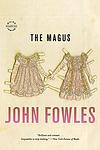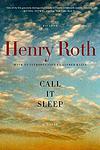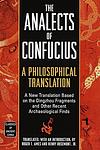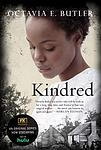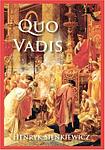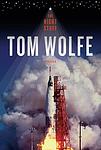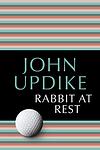The Greatest Books of All Time
Click to learn how this list is calculated.
This list represents a comprehensive and trusted collection of the greatest books. Developed through a specialized algorithm, it brings together 305 'best of' book lists to form a definitive guide to the world's most acclaimed books. For those interested in how these books are chosen, additional details can be found on the rankings page.
Genres
Countries
Date Range
Reading Statistics
Click the button below to see how many of these books you've read!
Download
If you're interested in downloading this list as a CSV file for use in a spreadsheet application, you can easily do so by clicking the button below. Please note that to ensure a manageable file size and faster download, the CSV will include details for only the first 500 books.
Download-
451. Life, a User's Manual by Georges Perec
The novel explores the lives of the inhabitants of a Parisian apartment block through a complex, multi-layered narrative. It delves into the interconnected stories of the building's residents, revealing their secrets, desires, and disappointments. The narrative is structured like a puzzle, with the author employing a variety of literary styles and devices, making it a complex and intriguing exploration of human life.
-
452. The Savage Detectives by Roberto Bolaño
"The Savage Detectives" is a novel that follows the lives of two Latin American poets, Arturo Belano and Ulises Lima, who are founders of a literary movement called "visceral realism." The book is divided into three parts and is narrated by multiple characters, providing different perspectives on the protagonists. The narrative spans over 20 years, following the poets' journey from Mexico City to Europe, Israel, and Africa, as they search for a mysterious poetess and navigate through the world of literature, sex, drugs, and the complexities of life.
-
453. The Magus by John Fowles
The novel is a psychological drama that follows a young Englishman, Nicholas Urfe, who takes a teaching post on a remote Greek island to escape his dull life and a failed relationship. There, he meets a wealthy, mysterious man who introduces him to psychological games that blend myth, reality, and illusion. As Nicholas falls deeper into these manipulative scenarios, he begins to question his own sanity and reality. The story is filled with existential themes, exploring the nature of personal freedom, love, and the blurred line between reality and fantasy.
-
454. Philosophical Investigations by Ludwig Wittgenstein
This book is a seminal work in 20th-century philosophy, presenting a detailed critique of the notion that our language directly corresponds to reality. The author argues that the meaning of words is not inherent, but rather derives from their use within specific forms of life. The book also introduces the concept of language games, suggesting that our understanding of language is akin to learning the rules of a game. The author further explores the limits of language, the nature of understanding, and the relationship between public and private language.
-
455. The Cherry Orchard by Anton Chekhov
"The Cherry Orchard" is a classic play about an aristocratic Russian woman and her family as they return to their family estate, which includes a large and well-known cherry orchard. The family is on the brink of financial ruin and the estate is slated to be auctioned off. Despite various attempts to save their beloved home and orchard, they are ultimately unable to prevent the sale. The play is a poignant reflection on the changing social order and the decline of the aristocracy in Russia at the turn of the 20th century.
-
456. We by Yevgeny Zamyatin
In this dystopian novel, the story is set in the future, where the protagonist, a mathematician, lives in a highly regulated society where citizens are known by numbers, not names, and every action is dictated by the state. Individuality and freedom are suppressed, and even the concept of love is replaced by regulated sexual liaisons. The mathematician begins to question the infallibility of the state after meeting a rebellious woman, leading to a series of events that challenge the very foundations of his world.
-
457. The Bluest Eye by Toni Morrison
The novel is a poignant tale of an African American girl named Pecola Breedlove who grows up during the years following the Great Depression. Living in a society that values beauty in terms of light skin and blue eyes, Pecola develops an inferiority complex and wishes for blue eyes, believing that it would make her beautiful and loved. The story explores themes of racial self-loathing, the standards of beauty, and the dynamics of power and oppression.
-
458. Call It Sleep by Henry Roth
This novel tells the story of a young Jewish boy, David Schearl, who immigrates to New York City with his mother in the early 20th century. The narrative explores David's struggles to understand his harsh father, his experiences with anti-Semitism and poverty in the Lower East Side, and his journey of self-discovery through his vivid imagination. The boy's fears and dreams are depicted through a stream-of-consciousness narrative technique, providing a powerful exploration of the immigrant experience and the harsh realities of the American dream.
-
459. The Secret Agent by Joseph Conrad
"The Secret Agent" is a dark political satire set in London in the late 19th century, revolving around a secret agent who is also a shopkeeper, his anarchist friends, and his family. The story unfolds as the agent is coerced by his foreign employers to orchestrate a bombing in a bid to provoke a political response, but the plan goes disastrously wrong, leading to tragic consequences and a deep exploration of themes such as anarchism, espionage, terrorism, and betrayal.
-
460. Death in Venice by Thomas Mann
"Death in Venice" is a novella that explores the life of Gustav von Aschenbach, a famous writer in his early fifties who embarks on a journey to Venice after experiencing a creative block. In Venice, he becomes obsessed with a beautiful Polish boy named Tadzio, whom he sees at the hotel where he is staying. Aschenbach's fascination with Tadzio becomes a metaphor for his own internal struggle with his repressed passions and his need for aesthetic beauty. The story culminates in Aschenbach's death as a cholera epidemic sweeps through Venice. His demise symbolizes the destructive power of his unfulfilled longing and his ultimate surrender to his repressed desires.
-
461. The Postman Always Rings Twice by James M. Cain
This novel is a thrilling tale of passion, murder, and betrayal. The story revolves around a drifter who becomes involved in an adulterous affair with a married woman. Together, they plot to kill her older husband for the insurance money. However, their plan spirals out of control, leading to unexpected consequences and a shocking conclusion. The narrative explores themes of lust, greed, and the destructive power of obsession.
-
462. Analects by Confucius
The Analects is a collection of sayings and teachings attributed to the Chinese philosopher Confucius and his disciples. The book emphasizes the importance of personal and societal morality, filial piety, and the cultivation of knowledge and virtue. Confucius stresses the importance of leading by example and treating others with respect and kindness. The Analects has had a profound impact on Chinese culture and philosophy, and its teachings continue to be studied and applied today.
-
463. The Third Policeman by Flann O'Brien
"The Third Policeman" is a darkly comedic and surreal novel about a nameless narrator who, after committing a murder to raise funds for his scholarly obsession with a bizarre pseudo-scientific theory, finds himself wandering in an eerie, nightmarish landscape. He encounters strange characters, including a pair of eccentric policemen who are obsessed with bicycles, and becomes embroiled in a series of increasingly absurd and ludicrous situations. The novel explores themes of existence, reality, and the nature of hell, with a twist ending that forces the reader to question everything they've read.
-
464. Kindred by Octavia E. Butler
"Kindred" is a gripping and thought-provoking novel that follows the life of Dana, a young African American woman living in the 1970s. Suddenly, she finds herself inexplicably transported back in time to the early 19th century, where she becomes entangled in the lives of her ancestors, who are enslaved on a plantation. As Dana navigates the brutal realities of slavery, she grapples with her own identity, the complexities of race, and the enduring legacy of the past. With its powerful storytelling and exploration of the connections between past and present, "Kindred" is a profound examination of history, race, and the enduring resilience of the human spirit.
-
465. Austerlitz by W. G. Sebald
The novel follows the story of Jacques Austerlitz, an architectural historian who was brought to England on a Kindertransport from Czechoslovakia during World War II. As an adult, Jacques embarks on a journey to uncover his past, including his original identity, his parent's fate, and his own lost history. The narrative is a haunting exploration of memory, identity, and the lasting impact of the Holocaust.
-
466. Red Harvest by Dashiell Hammett
In this hard-boiled detective novel, a private investigator is hired by a newspaper publisher in a corrupt western town to uncover the truth behind the murder of a local worker. As he delves deeper into the investigation, he finds himself embroiled in a chaotic war between rival gangs, corrupt police, and greedy industrialists. The detective uses his cunning and manipulation to turn these factions against each other, leading to a bloody and violent resolution.
-
467. Ada or Ardor by Vladimir Nabokov
Set in an alternate universe where Earth is known as "Antiterra," the novel follows the lives of Ada and Van, two wealthy siblings who fall into a passionate and incestuous love affair. Their relationship evolves over a span of 70 years, as they navigate through family secrets, personal tragedies, and the complex nature of time. The book is a blend of romance, science fiction, and philosophical exploration, all told through the author's signature wordplay and intricate narrative style.
-
468. Nine Stories by J. D. Salinger
"Nine Stories" is a collection of short stories that delve into the complex inner lives of a variety of characters, often exploring themes of innocence, alienation, and the loss of innocence. Each story is unique, offering a glimpse into a different world or situation, but all are marked by the author's distinctive narrative voice and his ability to create compelling, deeply human characters. From a young boy dealing with the death of his brother to a World War II veteran struggling with PTSD, the stories are both profound and deeply affecting.
-
469. The Fountainhead by Ayn Rand
The novel presents the story of an innovative architect, who values his individualism and creativity above all else. He refuses to conform to traditional architectural designs, which leads to his struggle against a system that rewards mediocrity and conformity. Despite numerous setbacks and rejections, he remains true to his unique vision and principles. The book explores themes of objectivism, individualism, and capitalism, challenging the reader to consider the value of standing alone against the collective.
-
470. The Unnamable by Samuel Beckett
"The Unnamable" is a complex, stream-of-consciousness narrative that explores themes of existence, identity, and the nature of reality. The protagonist, who lacks a clear identity, is trapped in a void and continually questions his existence and reality. As he grapples with his own consciousness, he attempts to tell his story, but constantly doubts and revises it, creating a cyclical, fragmented narrative. The novel is known for its challenging, abstract prose and its exploration of existentialist themes.
-
471. Adam Bede by George Eliot
"Adam Bede" is a 19th-century novel set in rural England that explores the themes of love, betrayal, and moral responsibility. The story revolves around a hardworking carpenter, Adam Bede, who is in love with a vain but beautiful dairymaid, Hetty Sorrel. However, Hetty is seduced by a young, thoughtless squire, Arthur Donnithorne, which leads to her becoming pregnant. When Arthur abandons her, Hetty leaves her baby in the woods, where it dies, and she is subsequently charged with infanticide. Adam, devastated by Hetty's actions, finds solace and eventually love with a devout Methodist preacher, Dinah Morris. The novel ends with Adam and Dinah marrying, finding happiness after the tragedy.
-
472. Quo Vadis by Henryk Sienkiewicz
Set in ancient Rome during the reign of Emperor Nero, "Quo Vadis" follows the love story of a young Christian woman Lygia and a Roman patrician, Marcus Vinicius. As their relationship blossoms, they must navigate the dangerous political climate of the time, marked by Nero's tyranny and the growing influence of Christianity. The novel provides a vivid depiction of the clash between pagan Rome and the early Christian church, culminating in the Great Fire of Rome and subsequent persecution of Christians.
-
473. The Right Stuff by Tom Wolfe
"The Right Stuff" is a non-fiction novel that explores the lives and experiences of the first Project Mercury astronauts selected for the NASA space program in the 1960s. The book delves into the personal and professional lives of these astronauts, highlighting their courage, competitiveness, and the immense pressure they faced. It also provides a detailed account of the space race between the United States and the Soviet Union during the Cold War era.
-
474. Breakfast at Tiffany's by Truman Capote
This classic novella explores the life of a young writer in New York City and his relationship with his neighbor, a charismatic and eccentric woman who lives off the generosity of wealthy men. The woman, who dreams of a life of luxury and freedom, captivates the writer with her charm and mystery. The story is a poignant examination of love, friendship, identity, and the struggle for personal freedom in a society bound by conventions.
-
475. Rabbit at Rest by John Updike
The novel is a final look into the life of Harry "Rabbit" Angstrom, a former high-school basketball star, now in his mid-fifties, overweight and grappling with several health issues. Despite his success in business, his personal life is in shambles, with his wife addicted to alcohol and his son to drugs. Harry, struggling with his mortality, is trying to understand his past and make sense of his future, while dealing with the changing American society and the consequences of his own choices.
Reading Statistics
Click the button below to see how many of these books you've read!
Download
If you're interested in downloading this list as a CSV file for use in a spreadsheet application, you can easily do so by clicking the button below. Please note that to ensure a manageable file size and faster download, the CSV will include details for only the first 500 books.
Download

